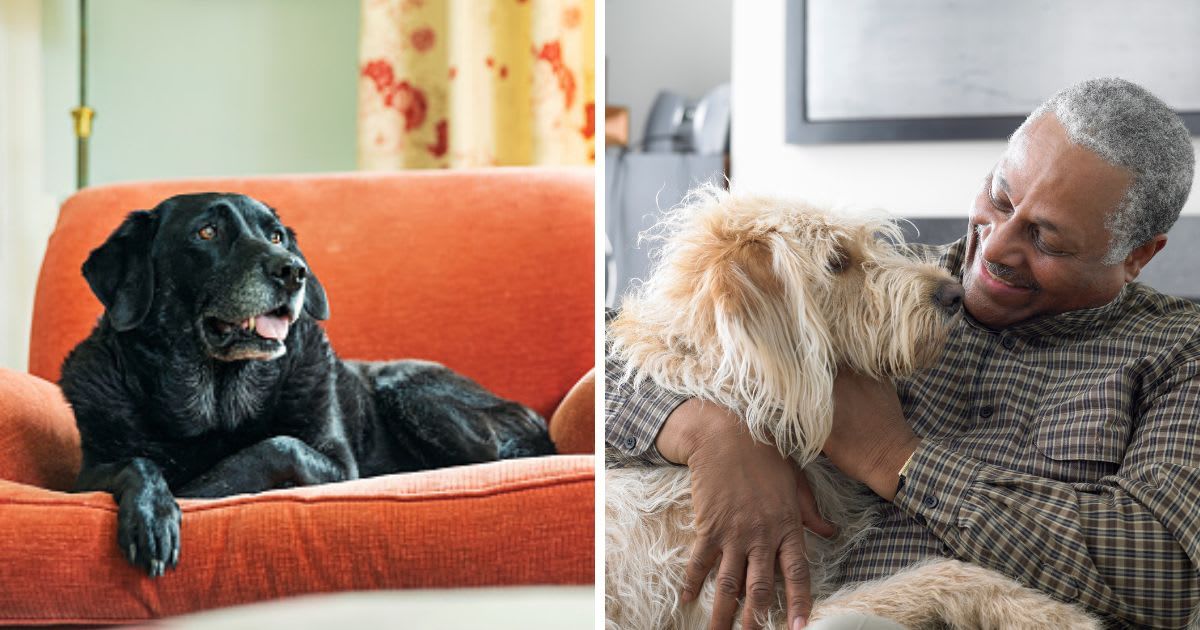If your senior dog could talk, these are the 8 heartfelt things they’d tell you about their final years, per vet

As they age, humans and dogs have more in common than they may seem. There comes a phase in every pet owner’s life when their furry companion begins to show signs of decline related to aging. Vet expert Dr. Shannon Daley, DVM, of Bunn Animal Hospital in North Carolina, suggests that pet owners prepare in advance to accommodate their pets’ needs as they grow older. To do that, it is important to pay close attention to shifts in behavior that could signal their senior years.

To put it into perspective, a report by Great Pet Care shared eight things senior dogs would “say” to their owners as they age. The first might be, “I can’t see or hear you as clearly as I used to.” This indicates hearing loss and visual impairment that influence a dog’s behavior. Cataracts, glaucoma, dry eye, or other ocular conditions can affect their sight. Poor hearing and vision loss are an unavoidable part of aging for most senior dogs. Secondly, “I might act anxious and forgetful sometimes.” As they grow older, dogs may become forgetful, have accidents indoors, stare at corners, or get stuck in odd places.

Such shifts in behavior are largely caused by Canine Cognitive Dysfunction (CCD) in senior dogs. Daley advises pet owners to be patient with dogs diagnosed with CCD. Another message a dog might convey concerns dental health: “My choppers could use some extra TLC.” Dental health is a crucial indicator of overall well-being. Dental disease can cause tooth pain and loss, and is also linked to kidney, heart, and liver problems. Therefore, regular dental care and vet checkups are essential. “My appetite and eating habits may change,” an aging dog would say, with decreased appetite and showing a lack of interest in food.

Oftentimes, a senior dog will not be as excited for their treats as they used to be as a puppy. Daley notes that while loss of smell and taste is part of aging, loss of appetite could also indicate underlying health risks. Senior diets that are easy to digest and eat can come in handy. “It may seem like I sleep all day,” would be a comment on their sudden laziness. Older dogs tend to sleep about 16 hours a day, which may concern owners, per ScienceDirect. While normal with age, excessive sleep can also signal degenerative joint disease.
“Healthy grooming habits are more important than ever,” a senior dog might say. Older dogs are less able to maintain hygiene, making grooming sessions more crucial. These sessions are also an opportunity to spot health issues or signs of decline.

“Keeping me healthy could cost you more,” would be a word of warning for the incoming vet expenses for the owner. The American Veterinary Medical Association recommends two in-depth vet exams per year for dogs in their golden years. Pet owners can plan financially during the dog’s youth to sustain care costs later. Finally, “Love me enough to let me go when the time comes.” Pet parents of senior dogs must be mentally prepared and seize every opportunity to smother their furry pals with love and treats before it’s time to say goodbye forever.